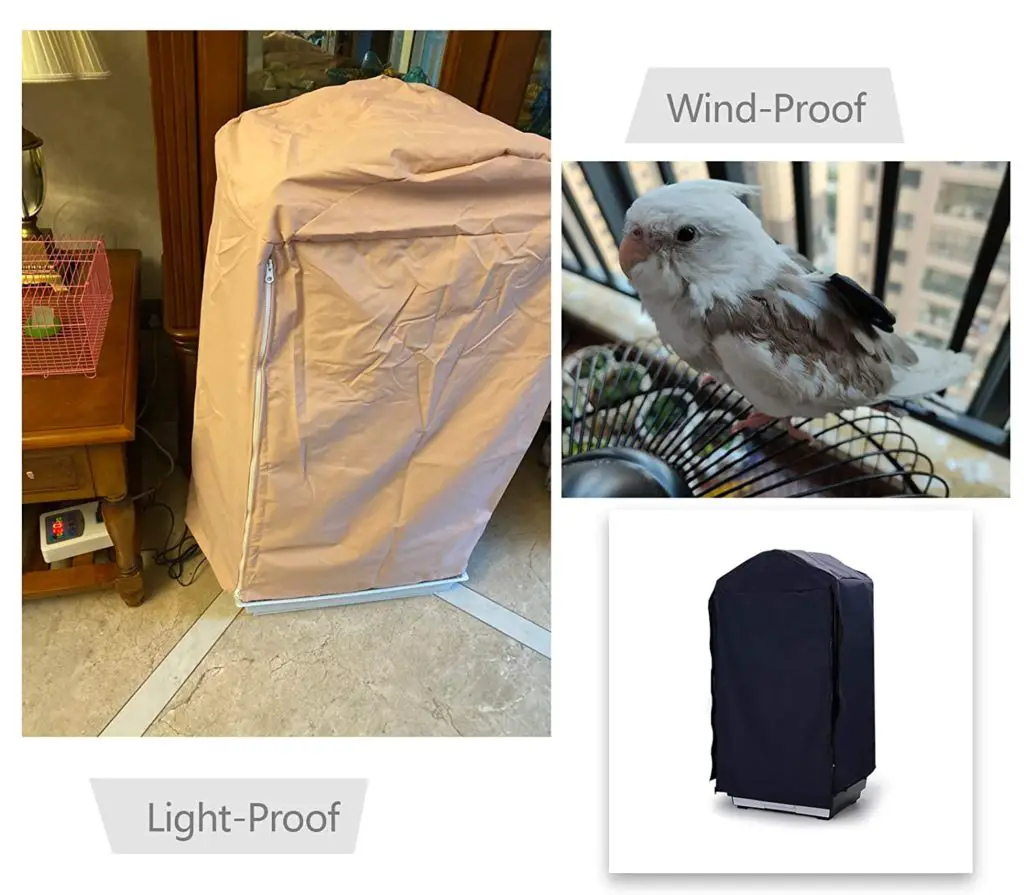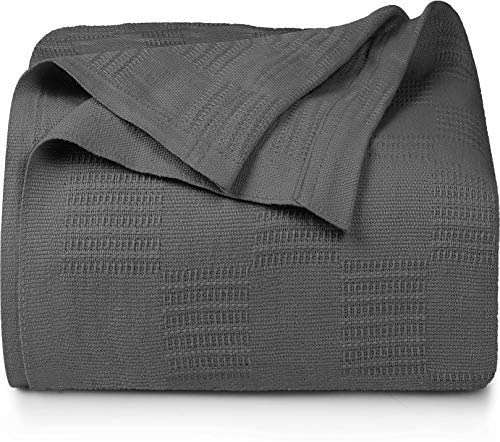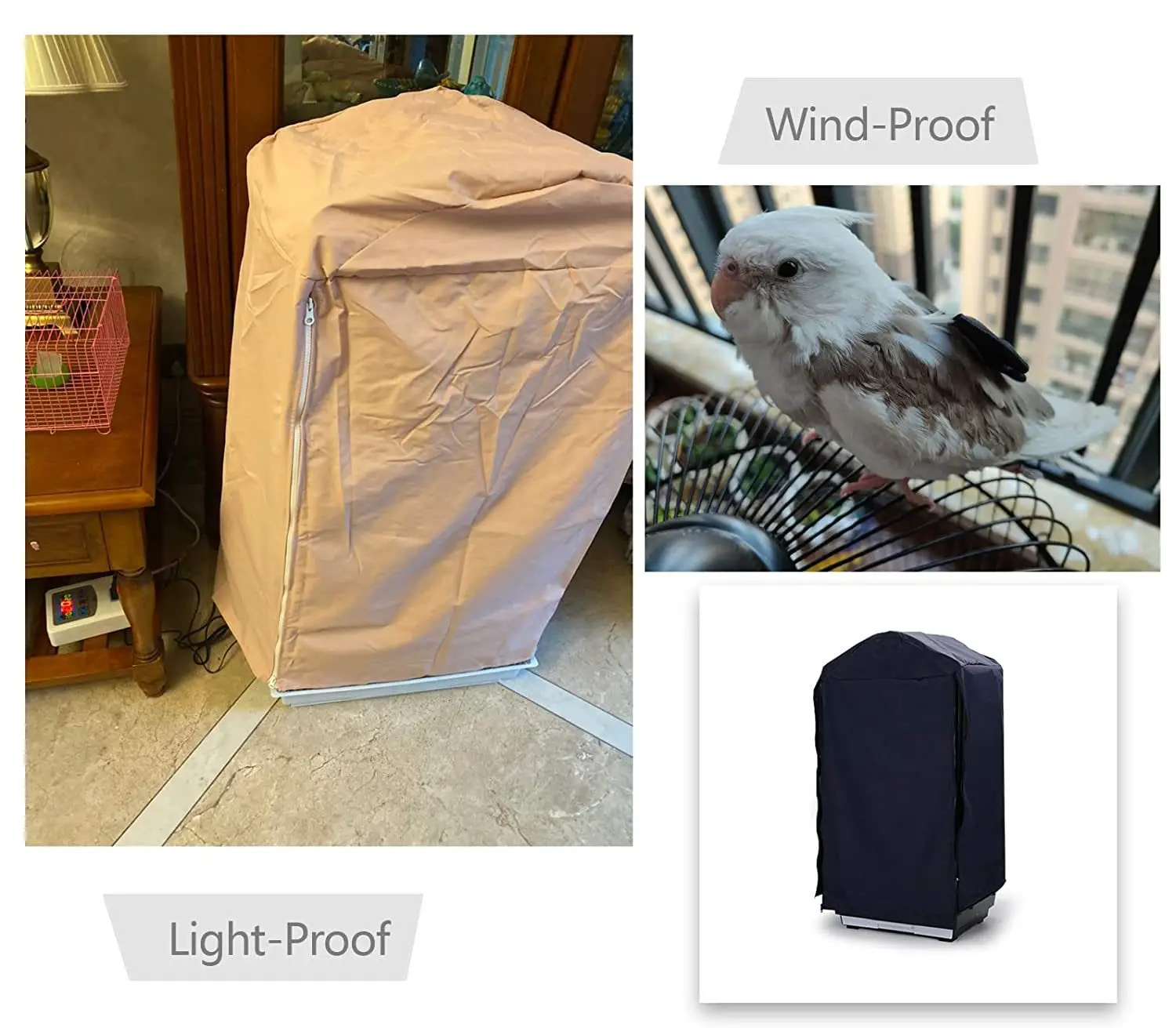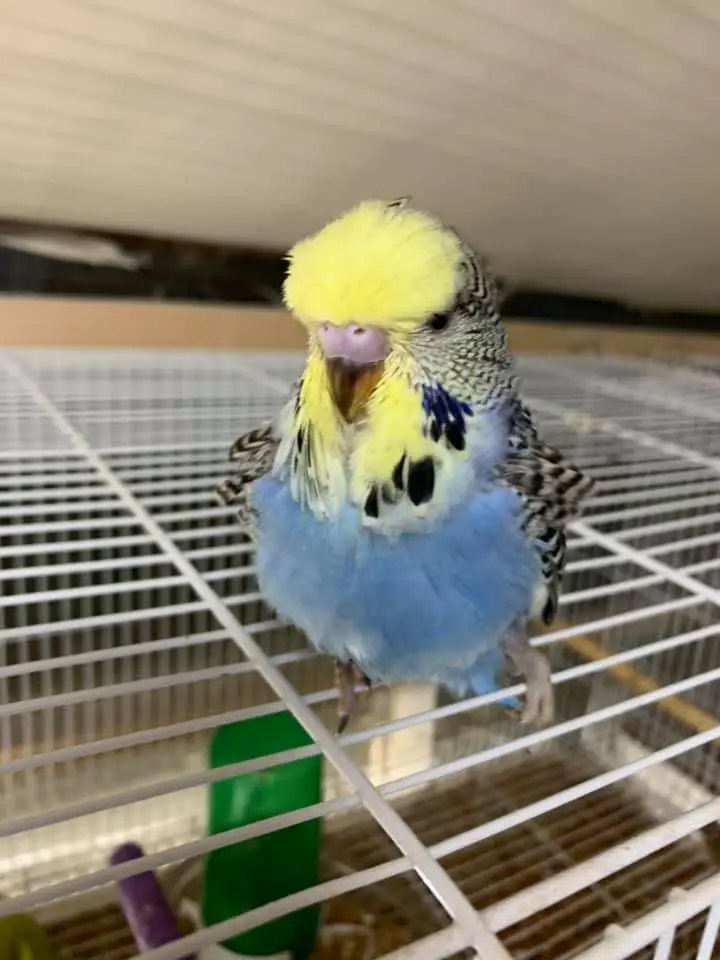In the wild, birds will usually make their way to their sleeping spot high in the trees when the sun is setting. But, if they are living indoors in a cage, it’s quite a different scenario for them.
Think about what happens in your house. The sun sets and what is the first thing you do? You’ll switch on the lights so you can see. You’ll most probably switch the TV on as well – these conditions are not natural for your pet budgies.


If the lights are on and the TV is blaring, chances are that your budgies won’t get enough quality sleep, they will be cranky in the morning and not fun to play and interact with. Lengthy periods of poor, broken sleep can also lead to illness.
Too many hours of light in a day could also push their bodies into the breeding mode. Birds are photosensitive which means they are sensitive to light and its cycles. If they have been awake during the day light and then there is more light at night, their bodies will be tricked into thinking that the days are becoming longer than the nights and they could be prompted into a hormonal phase. Some birds might even lay eggs, even if there isn’t a partner around.
As the budgie owner, you need to mimic the natural outdoors indoors, and provide your budgies with a safe, darkened environment to ensure a good night’s sleep.
What time do birds go to bed?
It’s not so much about setting a bed time as it is about providing your budgie with adequate darkness which will lead to good quality rest.
When you bring the budgies into your family, you will need to work out how to ensure that they are surrounded by conditions best suited to their health that will ensure they receive this quality sleep that they need, and give them a ‘bed time’ that suits your household and family.
Budgies need at least 10 to 12 hours of good quality sleep a night to be able to be able to function properly and remain in peak condition.
If you get up at 07h00 and can take the cover off the cage then, ideally they should be going to bed and having lights out between 19h00 and 21h00.
What do you cover the cage with?
The location of the cage indoors is important, sometimes you won’t be able to get the positioning perfect but you need to do the best that you can. Keeping your cage near to a window is suitable during the day as your budgie can see the world and other birds outside, however at night you need to close he curtains or move the cage away to avoid distractions.
When it is bed time, you should switch off the lights in the room that your bird is in and cover the cage with a light blanket of breathable material. If this doesn’t seem to be working or you need to keep a light on for some reason, purchase a heavier blanket that will act like a blockout curtain.


Soft Breathable Thermal Blanket


Heavier Blanket
Some people even purchase a green blanket to mimic the outdoors. In the wild, budgies sleep together in the trees and it is believed that, even if the birds were born in captivity, they have genetic memory of the tree sleeping.
Can birds sleep with the lights on?


Just like humans, you pet birds need the dark to sleep. If the lights are on they will instinctually stay awake in case there are predators nearby.
Studies have shown that even LED lights that are UV lightless, alter bird behaviour and can affect reproduction and biorhythms.
Ensure that wherever your budgie is going to sleep that you switch the lights off when it comes to their bed time.
Napping
You will find that your budgie will take short powernaps of anything from 20 – 30 minutes a day. If you have a flock of budgies, they will often do this together as it’s the golden rule of safety in numbers, and you will most likely see this if you have a few birds living together.
Usually the morning is the busiest time of the day for birds as they waken, forgage and stretch their legs and wings and generally after lunch, much like small children, they will nap.
Some budgies nap more than others and this is completely natural. It could also be because they did not have a good night’s sleep.
If you realise that they are napping a lot during the day but they are receiving adequate sleep, they could be ill and it would be worth your while to visit your avian vet.
Advantages of covering your bird cage
There are several advantages to covering your budgie cage at night.


- 1. It acts as a buffer against sounds and movement which would keep your bird awake or possibly scare him.
- 2. It provides darkness tricking them into thinking it is night time so they can get their much needed rest.
- 3. The cage covering offers a sense of security to your bird.
- 4. All of the above encourage your birds to settle quietly so they can get a good night’s rest.
What if your budgie doesn’t like having his cage covered?
Sometimes, not often, budgies simply do not want their cage to be covered. If this is the case and you find that covering your bird is stressing him out , don’t force it but rather get tactical in your thinking.
You will need to find a location in your house which will be your budgie’s sleep area. Obviously this will also depend on the size of the cage.
Do you have a spare bedroom or large enough bathroom that can be used as a sleeping room, just at night? Do you have an office that can be out of bounds to the humans during the night?
Make sure that this room is as dark as it can be (close the curtains at night and ensure there is minimal light coming into the room) and at night time place your budgies in this room.
What if your budgie gets a fright every time you take the cover off in the morning?
If you find that your budgie is getting a fright, the easiest thing you can do is to let him know that you’re approaching.
Do this either by talking to him calmly or making a simple noise such as clucking, and he will quickly learn that it is you, his human friend, approaching and that you do not pose any threat to him.
Essentially, providing your budgies with a covering for their cage is the best way to go. By cover the cage from early on, your budgie will quickly learn that this is normal and it is the signal that it is time to sleep.
By doing this and providing your budgies with adequate, safe, sleeping arrangements, they will wake up energised, fresh and happy.
******************


